While UChicago prides itself on its storied traditions, it is also committed to expanding undergraduates’ academic experience. The College takes student and faculty input seriously and regularly introduces new avenues of study—whether they be majors, minors or specializations. Many undergrads for instance have been drawn to the University’s new astrophysics major, which builds upon existing coursework in the physical sciences with new research and computer science requirements.
For others, especially those with eclectic academic interests, declaring a new minor or focusing on a new specialization within their major is a popular choice. To hear more about the benefits of these varied academic programs, we talked to five students from across different disciplines of the College, all of whom have recently committed to one of the newest minors or specializations.
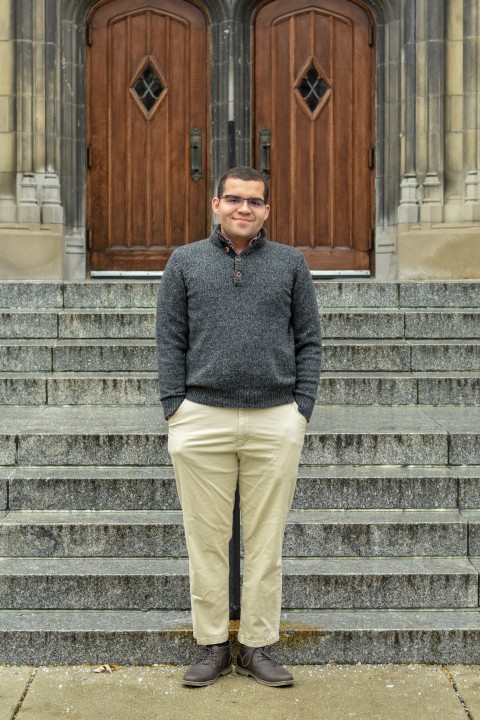
Boone Ayala: Digital Studies of Language, Culture, and History
Originally working toward a computer science major, fourth-year Boone Ayala eventually found that he was much more passionate about history. However, he still found his initial computer science coursework helpful, offering him “skills and tools to analyze history that most historians do not possess.”
So when Ayala found out about the digital studies of language, culture, and history minor—a new, interdisciplinary minor that combines software skills with humanities research—he knew it was a perfect fit.
“[My professors] understand that the ultimate purpose of this minor is to give us tools to better understand humanities... Their skill in technology allows them to teach these classes in the first place, but their grounding in the humanities ensures that they focus on material that is relevant and useful to students interested in conducting humanities research,” Ayala said.
For Ayala, the minor isn’t just a way to unite his science courses with his humanities courses—it’s a stepping stone toward a future career.
“This minor also ensures that the skills I built up over the course of my time as a computer science major can be beneficial to my ultimate goals of working within historical academia,” he said.
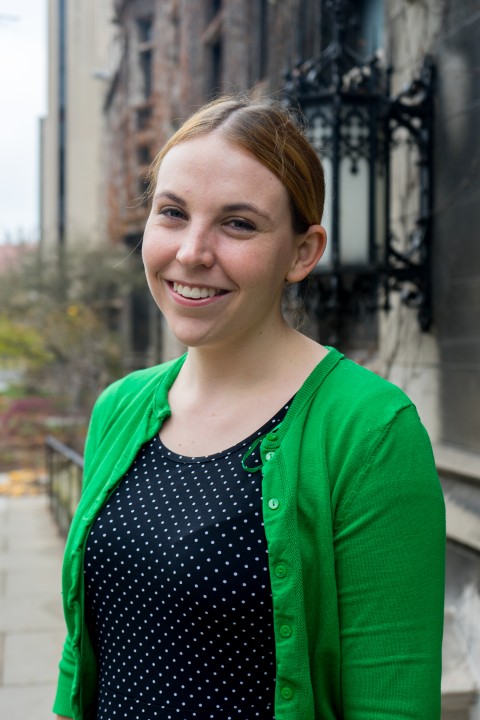
Meghan Elliott: Neuroscience
Already a psychology major, fourth-year Meghan Elliott saw her field in a whole new light upon completing the neuroscience study abroad program in Paris. The ability to count her courses from abroad toward the new seven-class neuroscience minor made her decision to officially declare it that much easier.
And while neuroscience often covers similar territory as her psychology studies, Elliott has appreciated how her minor courses diverge from her major too.
“My favorite part of taking classes in the minor has been getting to do hands-on labs. In psychology we don't get to do as much hands-on work, so it's exciting to have the lab component enriching my studies,” Elliott said.
Elliott had already known she wanted to pursue clinical psychology after graduation, and her neuroscience coursework gives her a new lens through which to approach her future.
“I want to have to a neurobiological understanding, to the extent it is possible, of the disorders I will someday be attempting to treat," she said. "The more information I have, the more creative I can be in finding solutions.”
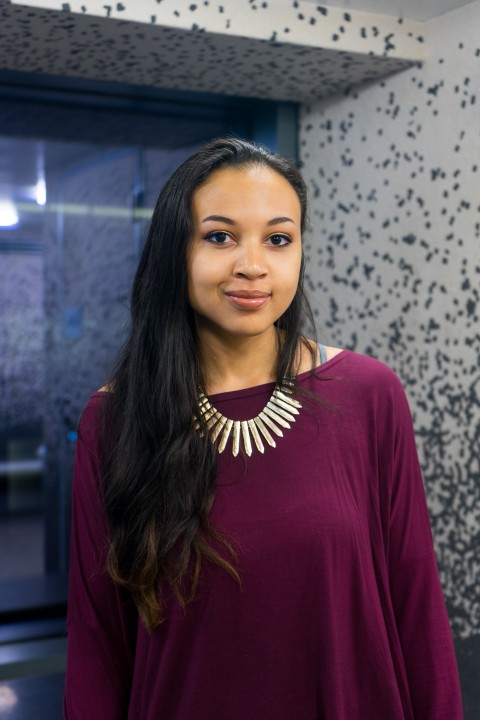
Lela Jenkins: Media Arts and Design
Having previously considered the visual arts minor, third-year Lela Jenkins added the media arts and design (MAAD) minor to her studies in art history and Spanish this quarter. The minor appealed to her because of its focus on digital and multimedia art as opposed to traditional studio art.
“Until the creation of the MAAD minor, I had mostly relied on personal endeavors and my own involvement in the arts community to practice graphic design,” she said. “When I heard about it at the end of my second year, however, I was excited to start a minor that directly catered to my interests.”
MAAD minors take a distribution of courses in media history, theory, and practice and design, and must complete a final portfolio of digital media artworks and analytical essays. Jenkins hopes to pursue a career in marketing with the graphic design and media skills she learns in this minor.
This quarter, she is taking her first MAAD classes: Metamedia Design Studio with Jon Satrom and Philippe Parreno’s Media Temporalities with Ina Blom.
“I'm enjoying the fact that they recognize the relevance of today's technology in changing ideas of culture and identity,” said Jenkins. “Unlike a lot of my classes, popular culture and contemporary media is something that regularly comes up in class discussion, [and it's] something I always think is fun and important.”
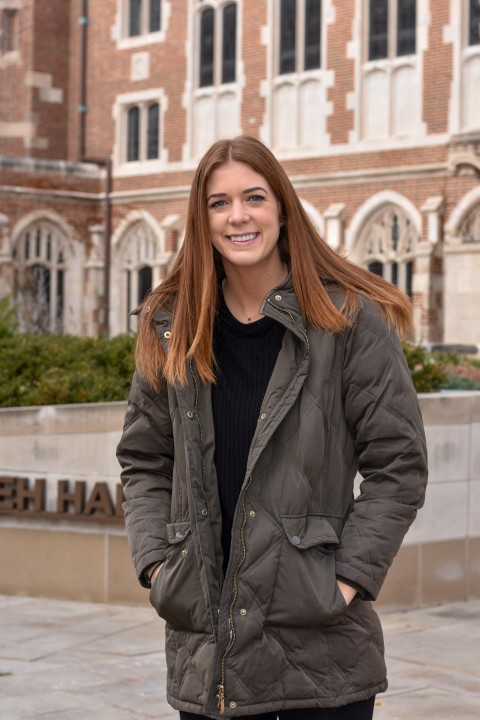
Anna Rose: Business Economics Specialization
Before the business economics specialization was added to the economics major this past year, third-year Anna Rose was unsure how to apply her interests in business, human behavior and economic policy toward a major course of study.
She had been undecided between the general economics, public policy and psychology majors but immediately gravitated toward the business economics specialization for its range of course options that could accommodate all of her interests.
“I am most looking forward to the various classes I will get to take [at the Booth School of Business]. Specifically, I am excited about accounting and behavioral economics,” Rose said. “Additionally, I am currently really enjoying a course called Building the New Venture, which is a hands-on entrepreneurship class that teaches the basic principles of starting a company.”
The flexibility of courses throughout the College and Booth allow her to approach the modern economy in both qualitative and quantitative ways, while also giving her an opportunity to explore potential careers.
“As someone who is really unsure of what career path I want to take. I felt that the business economics track…[would] allow me to better understand business as a whole and determine which industry I want to pursue in the future,” Rose added.
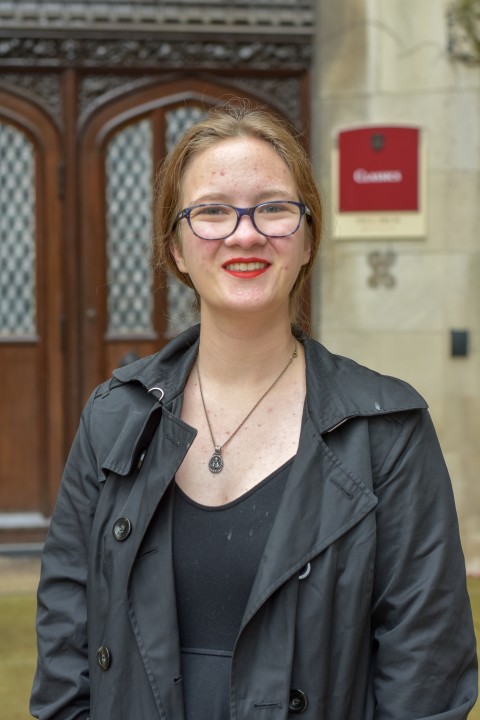
Hannah Trower: Renaissance Studies
Participating in Ada Palmer’s Italian Renaissance course last spring prompted fourth-year Hannah Trower to add the new Renaissance studies minor to her majors in Russian and Eastern European studies and Linguistics.
“[The class] changed my view of history,” she said. “It changed what I already knew about the Renaissance before and made me want to know more.”
To complete the minor, she also has taken Palmer’s class on censorship and is currently enrolled in Latin. Despite her equal fascination with all of her subjects of study, Trower said it’s not immediately apparent how Renaissance studies fits in with her majors.
“Russia didn’t really have a Renaissance,” she admitted. “But it was still influenced by Renaissance ideas coming from the West. There are a ton of buildings—churches, government buildings, etc.—that were built by Italian architects all over Russia, for instance. I’ve always been fascinated by that dichotomy.”